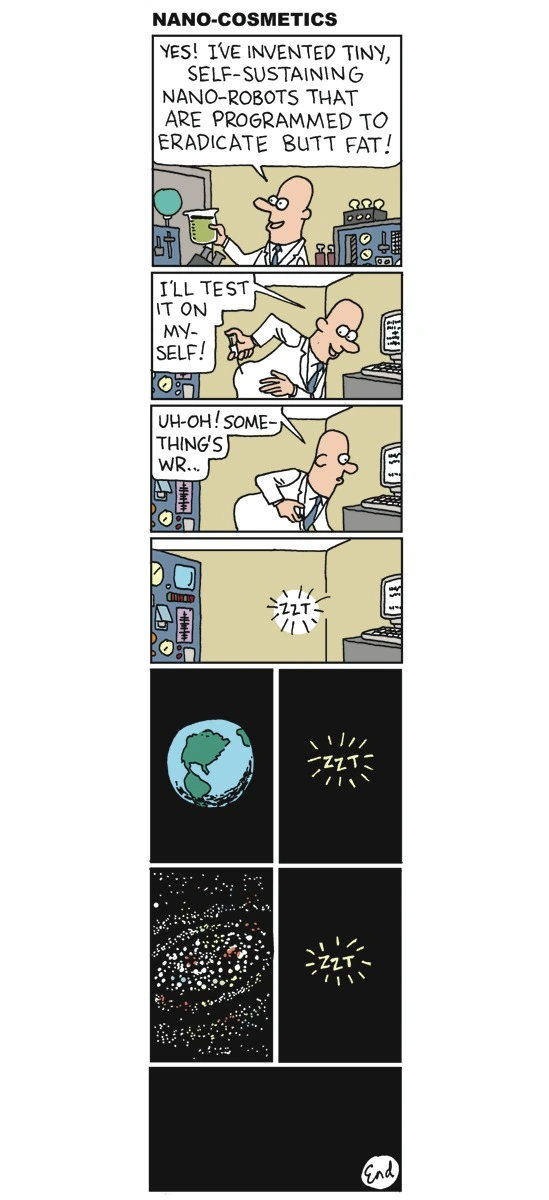this post was submitted on 25 Feb 2024
367 points (92.2% liked)
Comic Strips
12475 readers
4855 users here now
Comic Strips is a community for those who love comic stories.
The rules are simple:
- The post can be a single image, an image gallery, or a link to a specific comic hosted on another site (the author's website, for instance).
- The comic must be a complete story.
- If it is an external link, it must be to a specific story, not to the root of the site.
- You may post comics from others or your own.
- If you are posting a comic of your own, a maximum of one per week is allowed (I know, your comics are great, but this rule helps avoid spam).
- The comic can be in any language, but if it's not in English, OP must include an English translation in the post's 'body' field (note: you don't need to select a specific language when posting a comic).
- Politeness.
- Adult content is not allowed. This community aims to be fun for people of all ages.
Web of links
- [email protected]: "I use Arch btw"
- [email protected]: memes (you don't say!)
founded 1 year ago
MODERATORS
you are viewing a single comment's thread
view the rest of the comments
view the rest of the comments

Whilst I agree that universal consuming nanobots are a bit far fetched, I’m not sure I’m sold on the replication problem.
Life has replication errors on purpose because we’re dependent on it for mid to long term survival.
It’s easy to write program code with arbitrarily high error protection. You could make a program that will produce 1 unhandled error for every 100000 consumed universes, and it wouldn’t be particularly hard, you just need enough spare space.
Mutation and cancer are potential problems for technology, but they’re decidedly solvable problems.
Life only makes it hard because life is chaotic and complex, there’s not an error correcting code ratio we can bump from 5 to 20 and call it a day.